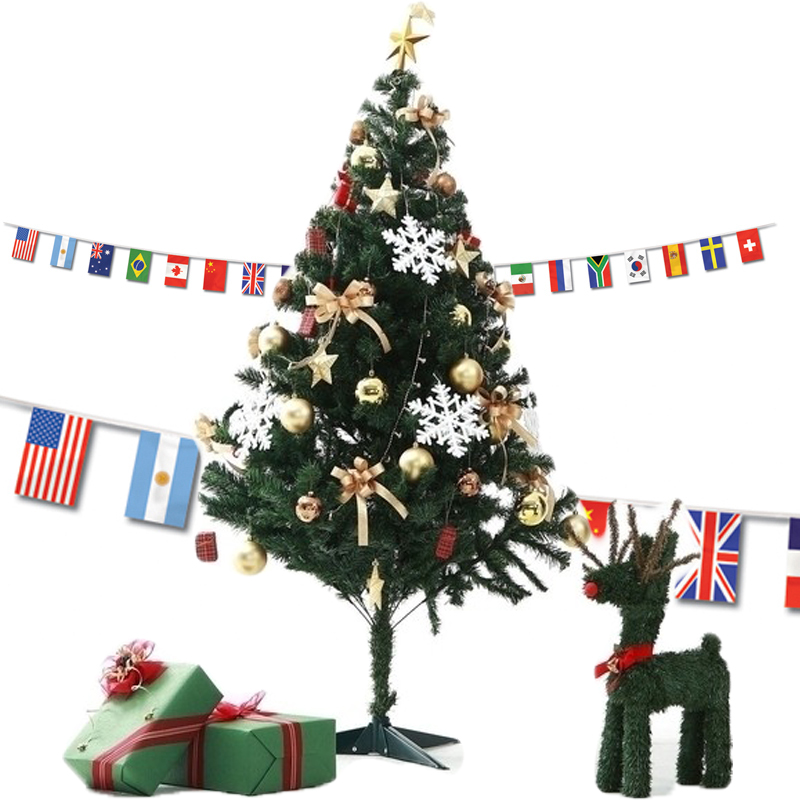I found myself running with my black heels and my big red bag full of dirty laundry I had packed in a hurry twenty minutes before leaving my house.
The clock read 12:15 a.m. and I was running down the streets I wouldn’t normally dare to walk through during daylight hours. Honduras is a beautiful country yet it’s dangerous enough to make you avoid walking at all costs.
But that night we all ran, grinning.
I heard the rest of my family behind me and burst out laughing as I glanced back and saw each of them, even my 78-year-old grandmother, with their own bag full of clothes screaming.
“Australia!” “Las Bahamas!” “El Vaticano!” “Tailandia!” “Las VEGAS!”
In Honduras, we have this myth running for a few blocks with luggage will help you have enough money during the year to pay for trips to countries or cities you’ve never been before. We usually do it either Dec. 25 after wishing each other a merry Christmas or in New Years after watching the 12:00 a.m. fireworks show.
After about 30 minutes and six or seven blocks of running, we went back home.
Every one of us got 12 grapes; each representing the 12 months of the year. For each grape we ate, we made a wish. The room that once was all music and drinking and laughing became almost silent for a while, as we all wished and prayed for the things — or the people — that came to mind.
Christmas celebrations around the world are part of each country’s culture and so, tend to be unique.
Children in El Salvador open gifts on Christmas Eve and put the wrinkled wrapping paper underneath their beds to get more presents the next day while women use yellow lingerie for good luck in Ecuador.
In Ghana, Christmas is celebrated because of the British colonization during the late 1800s, when Christianity was introduced into the country.
According to Herbert Bempah, a student at the University of New Brunswick from Ghana, the celebration is similar to the Canadian holiday because people also pretend to believe in Santa Clause. In Ghana though, the bearded old man with red clothes is known as “Father Christmas.”
“I feel like Christmas here is very commercialized in a way that there’s a lot of gift giving,” said Bempah.
His country has kept the religious tradition of seeing Christmas, first and foremost, as the birth of Christ. This is because most Ghanaians are Christians.
“So rather than people spending their Christmas night giving gifts, people actually go to church for long periods of time.”
The economic reality in Ghana is also very different from Canada, said Bempah.
“Parents don’t predominantly give gifts on Christmas day or sit around by the Christmas tree and pretend Santa Claus came in the night,” he said. “I know of many kids who receive their gifts in March because some families are unable to afford it. They promise their kids ‘I will definitely get this to you but I can’t promise you that it will come on the 25th.’”
Unlike Ghana, only 2.3 per cent of the population in India is Christian. Most of them reside in the south, where Christmas is celebrated with midnight mass and gift giving. Instead of having fir trees or pine trees to decorate, they usually have banana or mango trees instead.
Saru Gupta is a student at St. Thomas University from New Delhi, India. She said in the northern part of India, Christmas Eve is mostly spent partying with friends.
“Christmas is like the biggest holiday here. For us it’s not. We don’t have to go to church or do anything like that … It has no religious meaning to it, it’s just a trend.”
Plum cake is the traditional Christmas treat in India.
In Ghana, chicken, ice cream and Coca-Cola are usually part of the Christmas dinner.
“During Christmas all families try their best to get chicken,” said Bempah. Chicken is not a common food during the rest of the year. Neither are soft drinks like Coca-Cola.
Christmas mass lasts from 6 to 11 p.m. in Ghana. As a child, Herbert enjoyed going to Church during Christmas because it was an opportunity to see all his friends in the same place.
“Sometimes we would literally sneak out of the church and then last minute we would just go inside and our parents would be mad at us,” Bempah recalls laughing.
“This is my first time in two years, since I came to UNB, that I’ll be going over to Ghana. I’m actually really excited to experience that again.”

